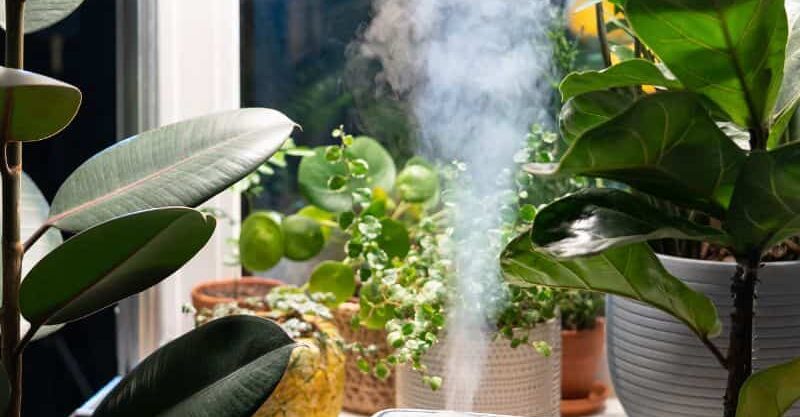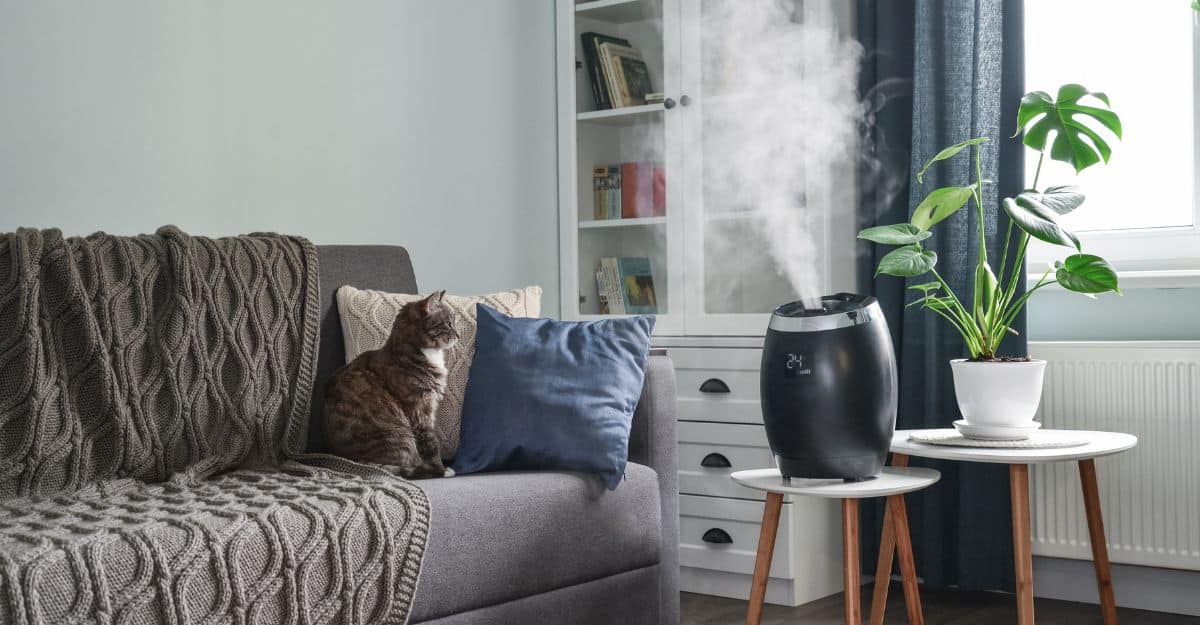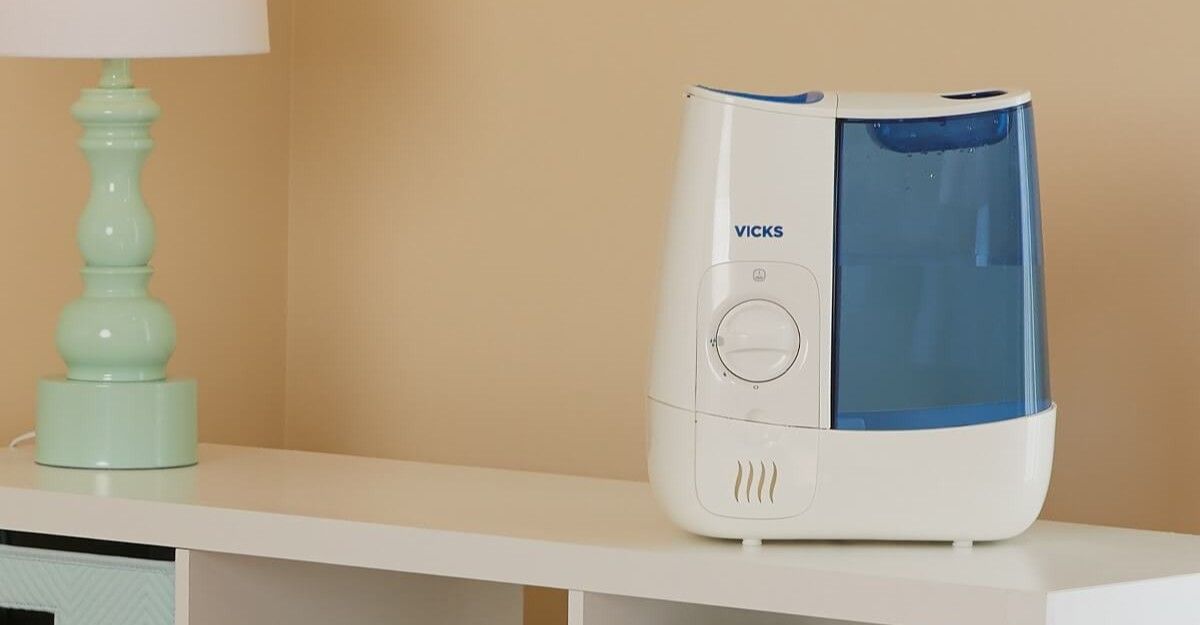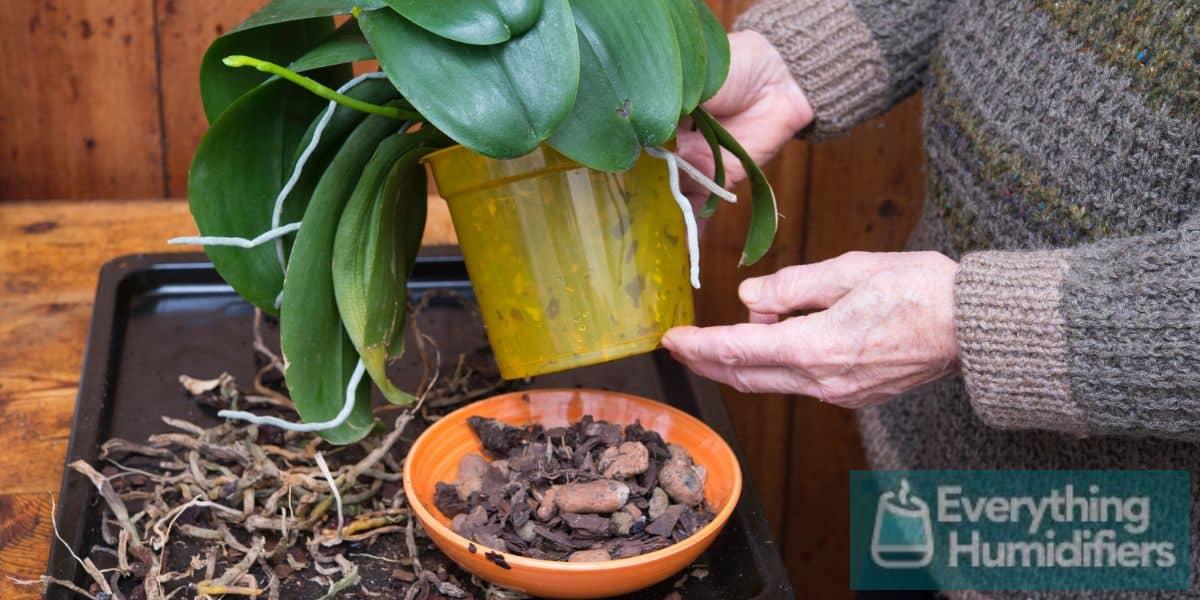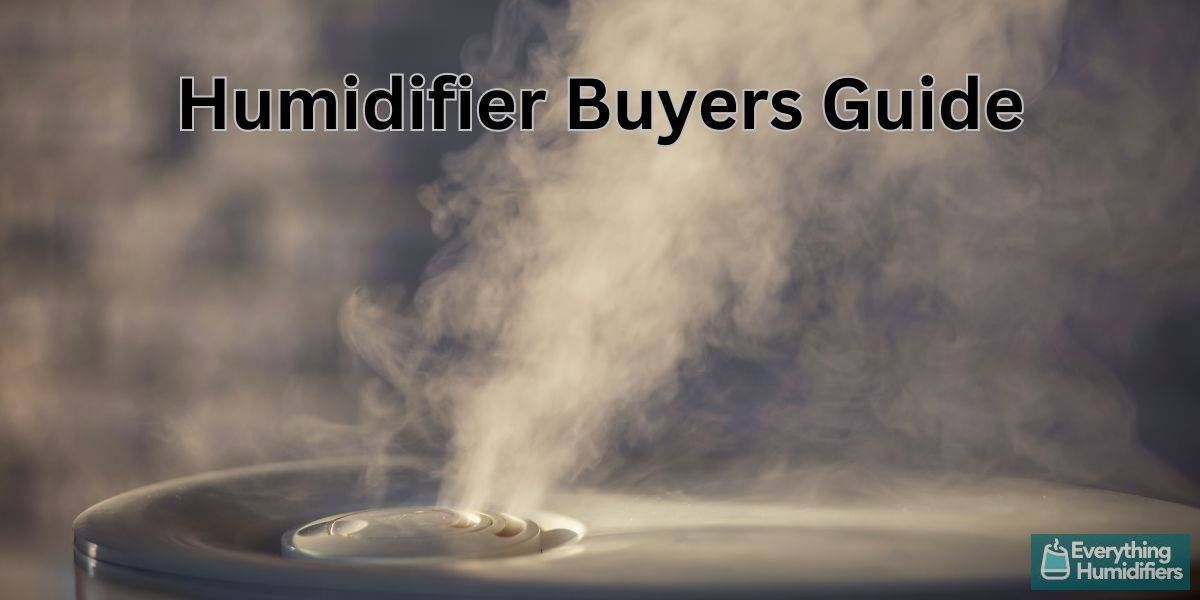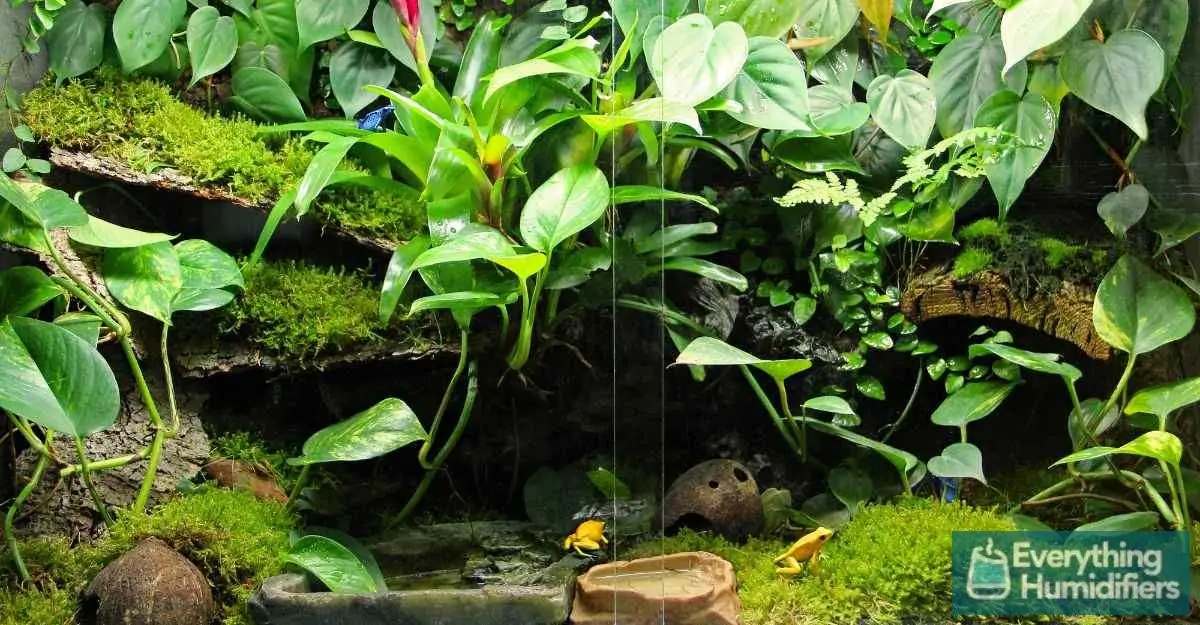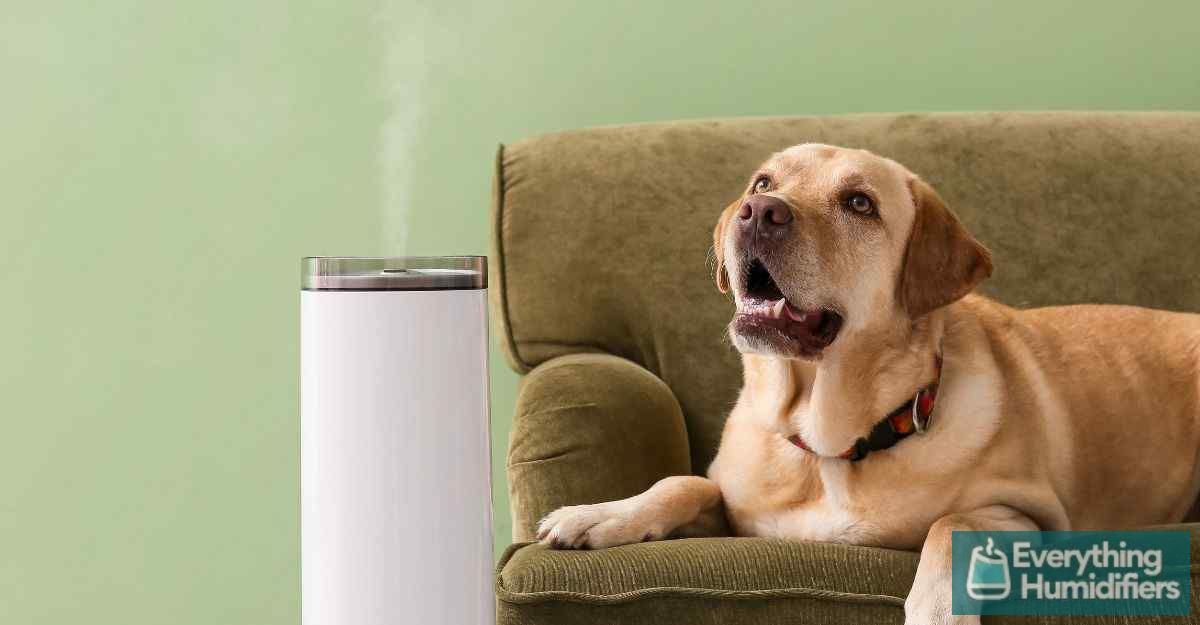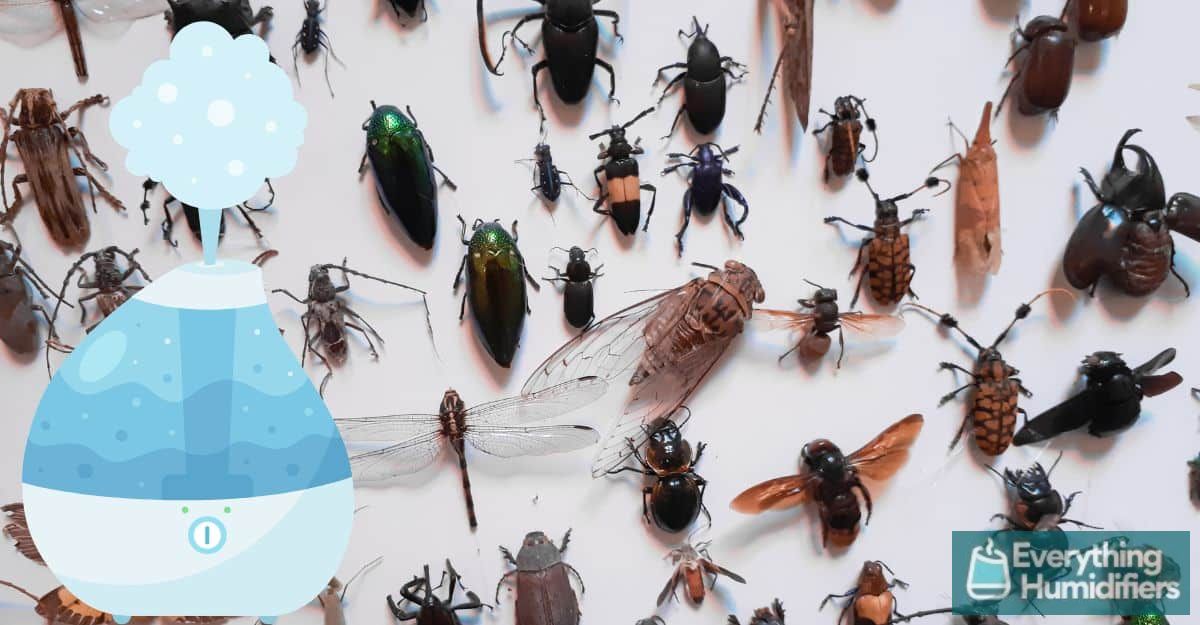Watching fish swim around in a tropical fish tank is a fantastic way to relax. But, while you are admiring your Angelfish and Neon Tetras, you may be unaware that fish tanks can cause high humidity. This translates into air that is too moist, which is terrible for your possessions, furniture, and health.
When the water in a fish tank evaporates, it enters the air as vapor and naturally increases the humidity in your home. This may become a problem if you have large tanks or multiple tanks. On the pro side, if your indoor air is dry, an aquarium may increase humidity slightly without the need for a humidifier.
In this article, we will explore the question – Will an aquarium increase humidity? And also learn how to create the ideal environment for your family and your fish.
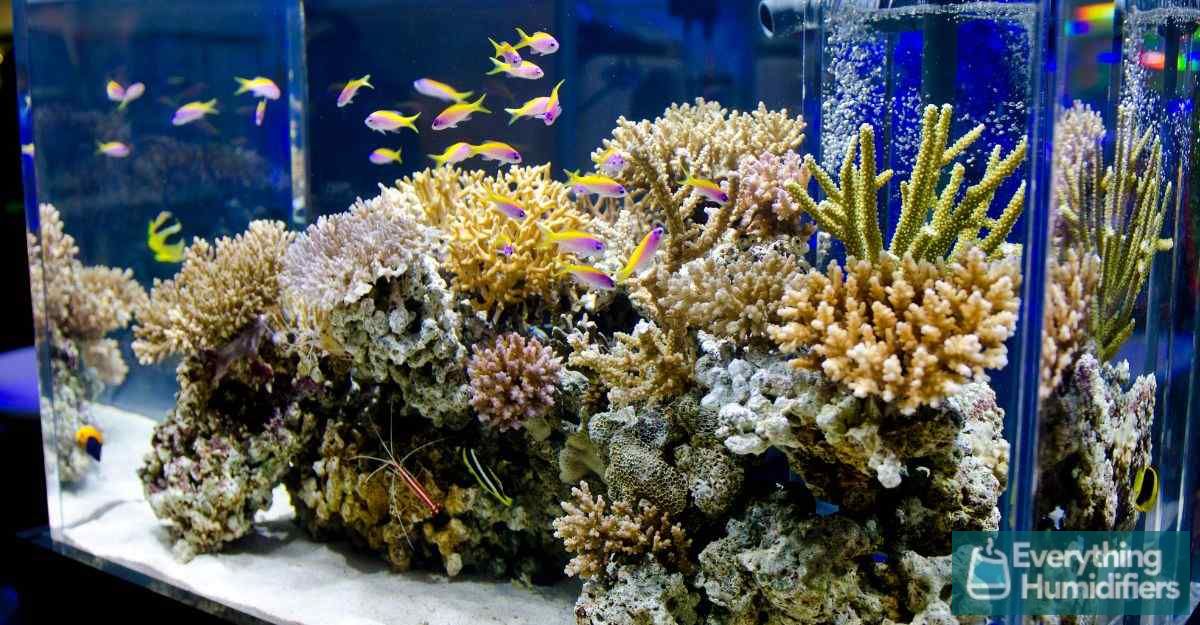
What is indoor humidity?
Indoor relative humidity is a measure of the amount of water vapor in the air.
The average home’s ideal humidity reading will be between 30% to 60%. If you are wondering how to measure this, you need a straightforward device called a hygrometer.
If your hygrometer reading is above 60%, you have high humidity that could become detrimental to your home and family.
You have low humidity and arid air if the reading is below 30%. Also not ideal for you or your family.
How does an aquarium increase humidity?
Humidity is increased when water evaporates out of the tank. This can be seen by taking note of the water level after filling it.
After a few days or weeks, depending on the conditions in the room, the water level will have dropped. This water has turned into vapor and diffused into the air.
In hot regions, fish tanks can lose a few inches of water in a week.
Factors that influence aquarium humidity
Aquarium water loss via evaporation that causes high humidity is affected by the following:
The room temperature
The hotter the temperature in your room, the faster the water will evaporate.
The water temperature in the tank
Some species of fish do require higher water temperatures. These tanks will have faster evaporation than those with cooler water temperatures.
Air circulation and ventilation
Closed-up and stuffy rooms with little ventilation encourage high humidity.
The type of tank you have
Saltwater tanks for ocean fish evaporate slower than freshwater tanks for river fish.
This is because salt molecules occupy a portion of the surface area, slowing down the rapid evaporation of water molecules. This interesting article explores more about saltwater vs. freshwater.
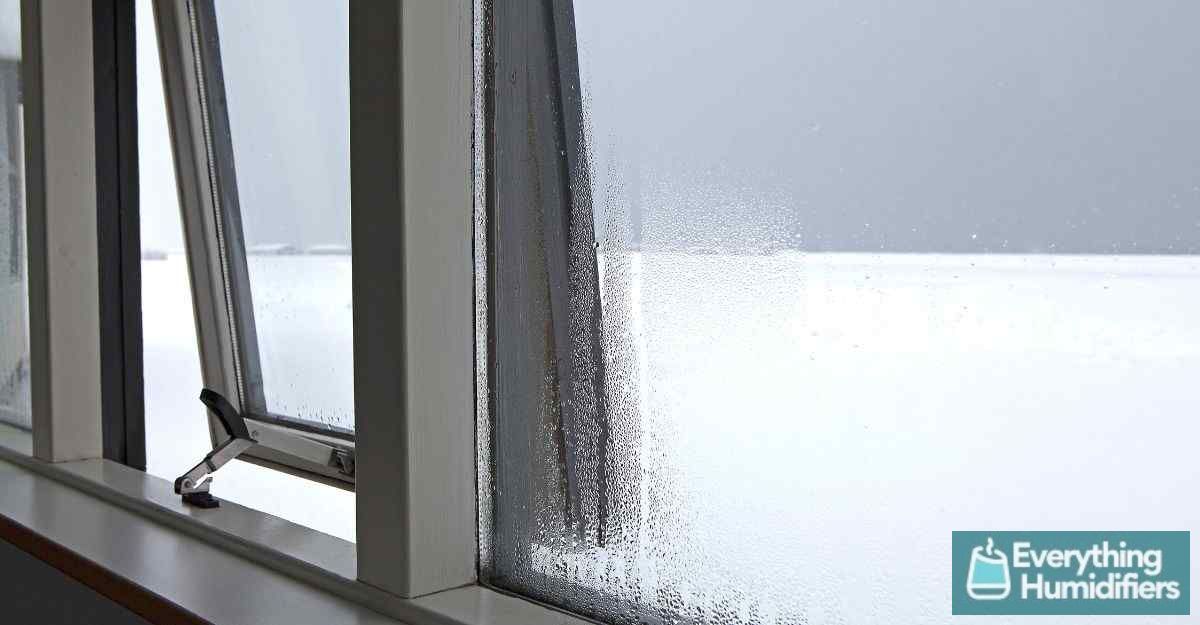
How do you know if your tank is causing high humidity?
These are some obvious signs that you have high humidity in your fish tank room
- Condensation appears inside your windows, on mirrors, and on metal surfaces.
- Mildew and mold can grow on walls, curtains, or furniture.
- A musty smell permeates the room.
- People in the home may start to show signs of respiratory issues or allergies.
- The reading on your hygrometer is above 60%.
How does high humidity affect fish?
When it comes to humidity and your fish, it is helpful to know that humidity does not directly affect fish in a tank since the humidity level refers to the amount of moisture in the air.
However, by not maintaining an appropriate humidity level in the surrounding environment, you can indirectly impact the fish tank in a couple of ways:
Evaporation
The room’s humidity level can influence the water evaporation rate from the tank.
Higher humidity will slow the evaporation process, reducing water loss from the aquarium.
Lower humidity can accelerate evaporation, causing water levels to drop more quickly.
Temperature regulation
High humidity in the room can lead to increased moisture on the tank’s surface, making it harder for heat to dissipate from the water. This can result in higher water temperatures.
Low humidity levels promote faster evaporation, leading to faster cooling and lower water temperatures.
Depending on the type of fish you keep, this can harm their health.
Electricity concerns
High humidity creates water vapor condensing on the tank’s inside roof.
Ensure that your electrical fittings, such as lights and pumps, are sealed from contact with water.
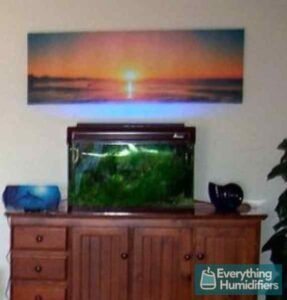
Is a humidifier detrimental to fish?
Installing a humidifier in the same room as your fish tank will not cause a problem for your fish.
There seems to be some discussion on whether adding essential oils to your humidifier would harm fish. Some people use essential oils to cure fish, while others are ardently against it.
The thing I keep forefront of my mind is that you should only use essential oils with the humidifiers designed explicitly by the manufacturer to do so.
I consider the ocean and what would or wouldn’t harm marine life; most of us have seen media about the effects of oil on the ocean, so it stands to reason that oil in your fish tank could be detrimental.
I stay clear of using other chemicals that could settle on the water of our fish tank as aerosols, paint, scented candles and smoke. That’s my preference.
As with most pets monitoring them when you change something in the environment is an excellent practice.
When you purchase your fish, ask many questions to see if what is required will fit your home environment and lifestyle.
A fish veterinarian may be a challenge to find, so aside from forums, you will be the ‘responsible person’ taking care of your fish.
Some standard ways to keep your fish safe:
| Do not over-humidify your room | The fish tank already adds water vapor to the air, and the humidifier will add more. Installing a humidifier is probably only needed in rooms with very low natural humidity. |
| Do not add aromatherapy oils to your humidifier | You may love the scent, but chemicals in these oils may be toxic to fish. |
| Use distilled or boiled water in your humidifier | This will prevent white dust from forming and floating into the fish tank. It can be harmful to fish due to the minerals from hard water. |
Finding the Balance – Creating an Ideal Aquarium Environment
If you are experiencing high humidity in your tank, here are some measures you can take:
Cover your tank
By having a tight cover over your tank, you will reduce evaporation and minimize moisture.
Install a hydroponic fan
While they are primarily used for indoor gardens, hydroponic fans can help in a room with many fish tanks. By circulating the air and reducing temperatures, they can prevent high humidity.
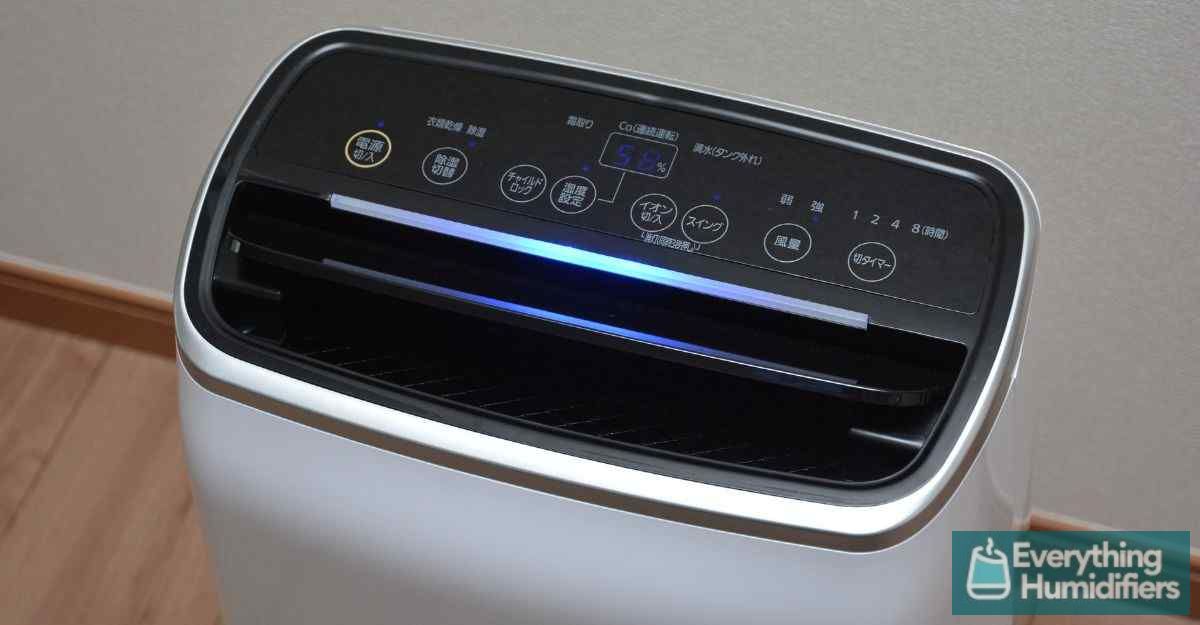
Run a dehumidifier
Dehumidifiers extract moisture from the air. It is crucial to maintain a balance. Very low humidity will cause evaporation to increase, reducing water levels in the tank.
Ensure that you have proper ventilation
Proper ventilation helps prevent high humidity. By allowing moist air to escape, your room will not become damp and muggy, and your tank will not be adversely affected.
Use humidity-absorbing materials
Silica Gel Packs and Calcium Chloride Crystals can absorb moisture from the air. Place them in containers around your tank, but ensure they do not come into contact with the water.
Seal your rooms
The humidity will naturally enter your home if you live in a sweltering, damp climate. To better control the humidity in your fish room, sealing windows and doors may help.
Frequently Asked Questions
Will an Aquarium increase Humidity in the room?
Yes, having a fish tank in your room can increase room humidity.
Does a fish tank act as a humidifier?
Yes, to some extent. Evaporation from the water in the fish tank increases the humidity in the room, acting as a natural humidifier.
Should I be concerned about excess humidity caused by my fish tank?
Excess moisture in the air can lead to humidity issues in your home, which can contribute to mold growth and other problems.
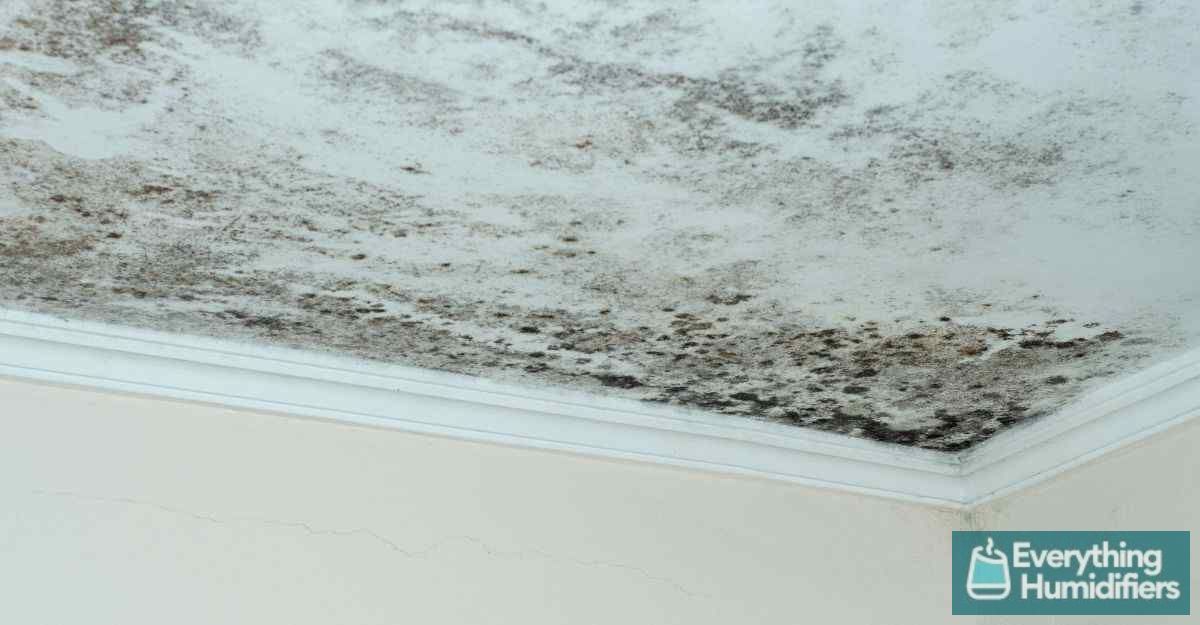
How can I control the humidity level in the room with an aquarium?
You can cover the tank when not in use to reduce evaporation, use a dehumidifier in the room, or maintain proper ventilation to keep the humidity levels under control.
You can manage humidity levels in your home aquarium by measuring and controlling indoor humidity levels with a hygrometer and practicing proper aquarium maintenance to reduce humidity.
Can a fish tank cause mold to grow in my home?
Yes, if the humidity levels are too high and not adequately controlled, it can create a conducive environment for mold growth.
Is it safe to keep a fish tank in a bedroom?
As long as you control the humidity levels and address any humidity issues promptly, it can be safe to have a fish tank in your bedroom.
Do fish tanks increase humidity of the room significantly?
The increase in humidity will depend on the size of the tank, the water surface area, and the room’s ventilation. However, a fish tank can increase the humidity to some extent.
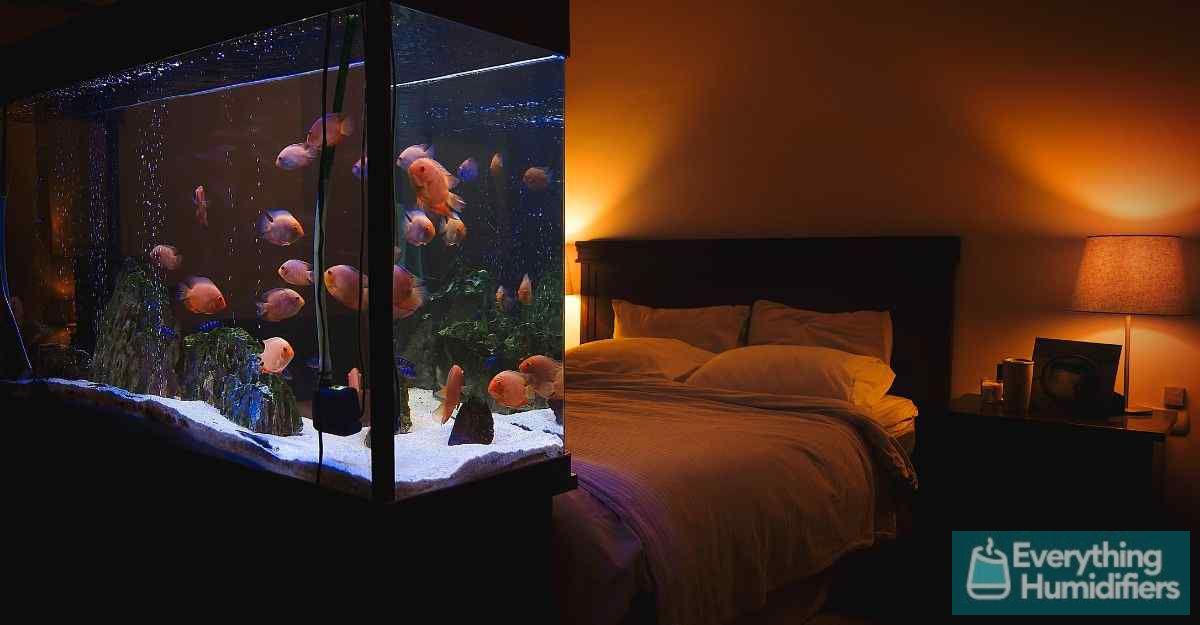
What are the potential risks of high humidity levels caused by an aquarium?
High humidity levels caused by an aquarium can increase the risk of mold, mildew growth, and damage to furniture and electronics. High humidity levels can also pose health risks.
Does the size of an aquarium affect humidity levels?
Yes, the size of an aquarium can affect humidity levels. Larger tanks will generally produce more humidity than smaller tanks due to greater water surface area.
What are the benefits of proper humidity levels for aquarium fish health?
Proper humidity levels can improve aquarium fish health by reducing disease susceptibility, maintaining oxygen levels, and promoting healthy metabolism and growth.
So, will an aquarium increase humidity?
Yes, an aquarium will have an impact on the humidity levels in your home. How much it will impact will depend on many factors, including:
- The size of your tank
- The number of tanks you have
- The type of tank – freshwater or saltwater
- The average temperature in your home
- The temperature that you need to maintain in the tank for your fish
- The climate you live in
- The ventilation in the room and in the home
You can provide a healthy atmosphere for your family and your fish by using a hygrometer to measure your humidity and taking precautions to avoid high humidity.

















